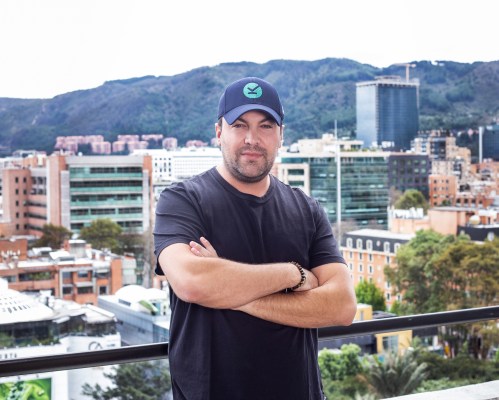Ecuadorian payments infrastructure company Kushki has raised $100 million in an extension to its Series B round, more than doubling its valuation to $1.5 billion.
The startup had raised $86 million in the first tranche of the financing in June of 2021 at a post-money valuation of $600 million. It has raised nearly $200 million since its 2017 inception, according to Crunchbase.
Raising an extension as opposed to a new round made more sense because it was the same investors doubling down, according to CEO and co-founder Aron Schwarzkopf. Those backers include Kaszek Ventures, Clocktower Ventures, SoftBank Latin America Fund and DILA Capital, among others.
“Since then, we have just gotten more ambitious and continued to grow so we needed more money to fuel more growth,” Schwarzkopf said in an interview with TechCrunch. “The only things that changed were the economics and speed of business.”
The raise comes after a year in which Kushki saw 200% revenue growth, he said, declining to reveal hard revenue figures. It also follows a quarter in which the company grew by 100% year over year.
Put simply, Kushki aims to help make it easier, cheaper and more secure for businesses across LatAm to send and receive/process digital payments. Specifically, it enables LatAm businesses to accept payments globally and receive money in their local currency. The end goal is to help these businesses — such as digital banks — grow faster online and drive consumer adoption of digital payments. At the same time, Kushki claims its infrastructure can help boost acceptance rates and reduce fraud.
In more technical speak, Kushki has developed an API that gives businesses a way to interact with “all the information” they need to integrate its payment technology to their business.
Kushki has “hundreds” of customers, including Telefónica, Claro, Credijusto, Colombian on-demand delivery unicorn Rappi, Santander and others.
Payment infrastructure has continued to be resilient despite a global venture slowdown and challenging macroenvironment, and Kushki is no exception. And in Latin America in particular, Schwarzkopf believes, “it’s very low tech, usually very fragmented and unstandardized.”
“I’m not saying we are completely impervious to the downturns but the problem we’re tackling is so, so big right now and what we’ve been able to conquer is so small compared to that,” Schwarzkopf told TechCrunch. “The problem is so big in LatAm, that regardless of whether NASDAQ goes up or down, payments in Latin America will continue to trend up. What we’re building is like a gigantic pillar, not only for us, but for other companies that are building on top of us.”
Today, the startup operates in five countries: Ecuador, Mexico, Peru, Colombia and Chile. Its team of 750 employees, up from just over 100 in mid-2020, is composed of 70% product and engineering staff, and the company has offices located all over the world, with staff located in the U.S., Europe, APAC and Brazil. The company plans to use the capital primarily to advance on its mission to develop “a modern payment infrastructure for Latin America that facilitates payment transactions of any type in any country.”
“We believe Kushki is just getting started in its mission to connect LatAm with efficient digital payments,” said Hernan Kazah, managing partner at Kaszek, in a written statement. The firm first invested in the company’s Series A round in early 2020.
Latin American startups have been the recipients of an increasing amount of interest, and venture dollars, in recent years. One of the biggest differences between startups in the region, though, and those in the U.S., in Schwarzkopf’s view, is that Latin American startups have often demonstrated significantly more traction than their foreign counterparts at lower valuations.
“A lot of payments companies in the United States have a small portion of what we have in terms of revenue, but have five to 10 times the valuation that we have,” he told TechCrunch.
Just last month, São Paulo–based Dock, which operates a full-stack payments and digital banking “platform” across LatAm, raised $110 million in a growth funding round led by U.K.-based Lightrock and Silver Lake Waterman, bringing its valuation to over $1.5 billion.
My weekly fintech newsletter, The Interchange, launched on May 1! Sign up here to get it in your inbox.
